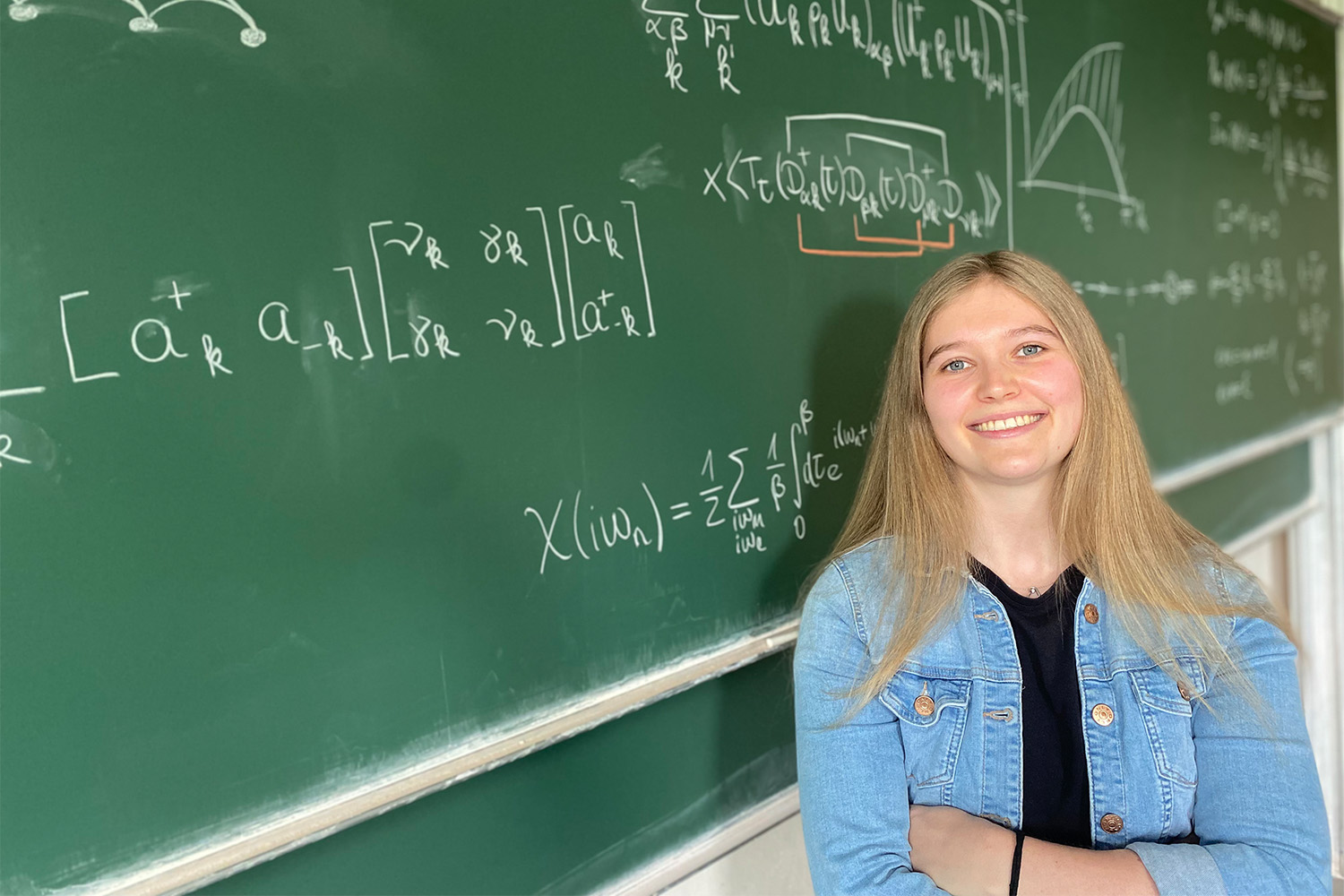Physics student selected for Nobel Laureate Meeting Laura Patzke, Master student of Theoretical Physics, is a participant in Lindau
It is a great honour for the Braunschweig physicist Laura Patzke: the student, who is working on her Master’s thesis in the group of Professor Wolfram Brenig at the Institute for Theoretical Physics, was selected in a highly competitive international review process to participate in the 73rd Nobel Laureate Meeting in Lindau on Lake Constance. From 30 June to 5 July, more than 30 Nobel Laureates will meet and exchange ideas with more than 650 young scientists from all over the world on this year’s focus on Physics.

Laura Patzke. Photo credit: Alexander Schwenke/TU Braunschweig
The Nobel Prize is considered the highest scientific honour in Physics, Chemistry, Medicine, Literature and for peace efforts. For Ms. Patzke, being able to engage in a personal exchange with the laureates of this prize and at the same time establish international networks with like-minded young scientists is a unique opportunity. She is looking forward to meeting Nobel Laureates Prof. Dr. F. Duncan M. Haldane and Prof. Dr. J. Michael Kosterlitz, among others. They have discovered the theory of the topological phases of matter that can occur in Ms. Patzke’s field of research. She is also looking forward with great interest to the lectures by Prof. Dr. Anton Zeilinger, a pioneer of quantum information, and Prof. Dr. Donna Strickland, the discoverer of CPA ultrafast spectroscopy. Of course, Ms. Patzke would also like to talk to Braunschweig alumnus Prof. Dr. Klaus von Klitzing. He is the discoverer of the quantum Hall effect, which is so indispensable for the work of the Physikalisch-Technische Bundesanstalt (PTB) in Braunschweig.
In her Master’s thesis, Ms. Patzke is investigating the dynamics of quantum spin systems. She is developing a theory for the generation of elementary excitations using light. This is also crucial for the interpretation of optical experiments. The so-called “frustration” of magnetic interactions is important for her theory. This is what makes the interaction of light with its quantum spin systems possible in the first place. In her Bachelor’s thesis, Ms. Patzke had previously studied disorder in two-legged spin ladders. For this work, she was awarded the “Women in STEM” scholarship of the Zonta Club Braunschweig in 2023.
